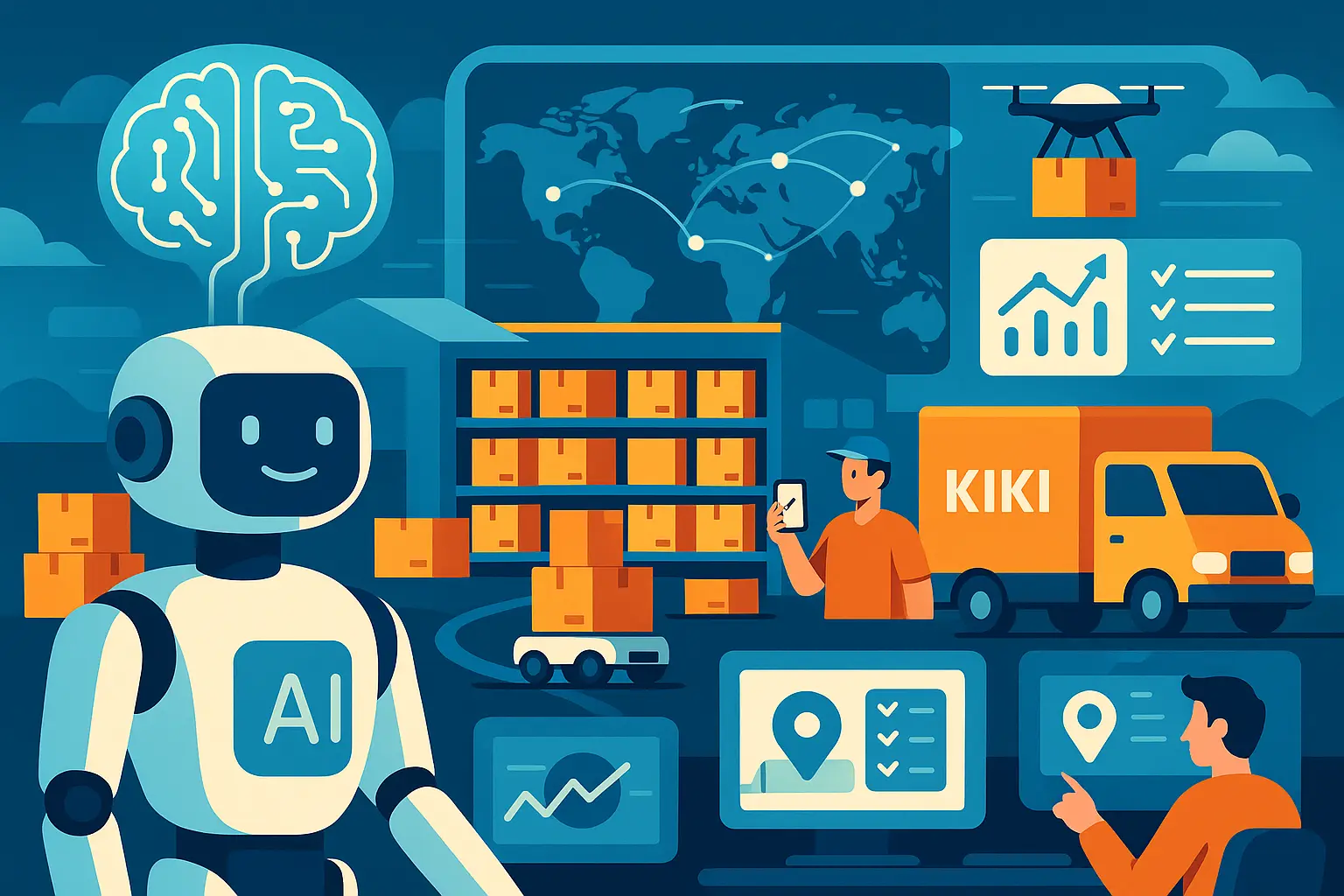Logistics, a critical subset of supply chain management, has evolved significantly with the rise of advanced technologies. Today, artificial intelligence (AI) stands out as a key driver of transformation, redefining how transportation, storage, and delivery operations are planned, executed, and optimized across the logistics chain.
What Is AI in Logistics?
AI in logistics refers to the use of algorithms and predictive models to forecast demand, plan shipments, optimize warehouse operations and transportation routes, and enhance customer experience. With these capabilities, companies can act proactively to mitigate delays, automate repetitive tasks, and gain real-time visibility across their operations.
Key Applications of AI in Logistics
1. Demand Forecasting
AI enables companies to combine historical data with external variables—such as weather or regional events—to better predict what products will be needed, when, and where. This helps avoid stockouts and reduces overstocking.
2. Inventory Management and Optimization
AI-driven tools help logistics managers identify bottlenecks, prioritize critical orders, group frequently ordered items, and improve warehouse layouts to speed up fulfillment.
3. Transportation Optimization
By analyzing weather conditions, traffic, strikes, and road closures, AI helps determine the most efficient routes, reducing delivery times, carbon emissions, and fuel consumption.
4. Automation and Robotics
AI-powered robots can pick, sort, and package goods faster and more accurately than human workers, minimizing errors and workplace injuries.
5. Intelligent Product Returns (Reverse Logistics)
AI identifies products with high return rates, helping detect potential defects or market mismatches. It also streamlines returns processing by automatically routing returned goods to designated locations.
6. Fleet and Transport Management
AI systems predict estimated time of arrival (ETA) and suggest mid-transit adjustments. They also help allocate cargo between internal fleets and external carriers autonomously.
7. Document Automation and Customer Support
AI extracts key data from physical and digital documents—such as invoices and receipts. In customer service, AI chatbots handle common logistics inquiries, improving response times and reducing operational workload.
Real-World Use Cases
Western Digital implemented “Logibot,” a digital assistant that provides 24/7 support to supply chain partners. It handles inquiries, gathers customer feedback, and helps optimize service efficiency. The company aims to extend Logibot’s capabilities to procurement, planning, and manufacturing.
In industries dealing with perishable goods, AI enables autonomous tracking of shipping conditions (like temperature or delays), allowing logistics teams to reroute goods and reset customer expectations proactively.
Business Benefits of AI in Logistics
- 15% reduction in logistics costs.
- 35% improvement in inventory levels, according to McKinsey & Company.
- Faster delivery times.
- Increased order accuracy.
- Reduced fuel consumption and environmental impact.
- Enhanced transport safety through predictive AI and sensor data.
- Predictive maintenance of warehouse and transport equipment.
Challenges in Adopting AI in Logistics
Despite its potential, several challenges remain:
- High implementation and training costs.
- Integration with legacy systems, which are often outdated or rigid.
- Privacy and cybersecurity concerns, particularly in non-cloud-based applications.
Trends and the Future of AI in Logistics
A 2024 survey by Zogby Strategies and Xometry revealed that 97% of companies plan to adopt AI in their logistics operations within the next two years. Leading firms are investing in:
- Dynamic last-mile planning.
- Smart pricing systems.
- AI-powered control towers.
- End-to-end process automation.
Artificial intelligence is revolutionizing logistics, making operations faster, safer, more sustainable, and customer-centric. While adoption hurdles exist, the positive impact is already visible across industries. Companies that invest in AI-powered logistics today will be better positioned to meet tomorrow’s challenges and stand out in an increasingly competitive marketplace.
